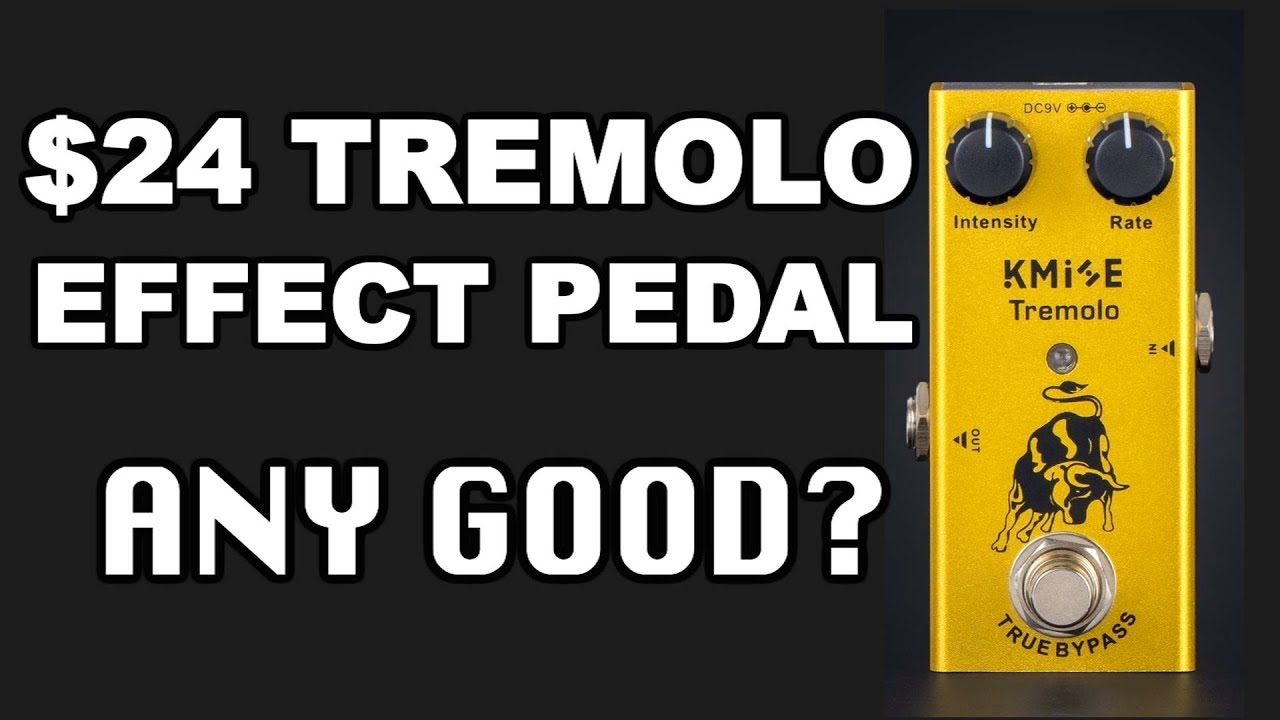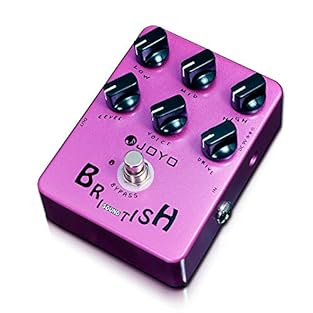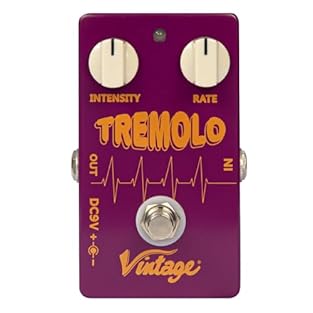Just tremolo guitar effect pedal videos – Kmise Tremolo guitar effect pedal demo & review $24 brand new!

Just Tremolo – Kmise Tremolo guitar effect pedal demo & review $24 brand new!
SHAEVLE Tremolo Effect Pedal for Guitar – All-Analog Circuit, True Bypass, Volume-Compensated Depth Control, Compact Stompbox TREMBLE(Tremolo)
【Authentic All-Analog Tremolo】Experience a true and classic tremolo vibe with a pure analog circuit, delivering rich, organic modulation that responds naturally to your playing dynamics. 【Advanced Depth Control with Volume Compensation】Our specially engineered DEPTH knob not only offers an extremely wide range of intensity but also intelligently compensates for volume loss, even at the deepest, choppiest settings. 【Simple Two-Knob Operation】Dial in your perfect tremolo sound instantly with dedicated controls for Speed and Depth. Effortlessly create everything from subtle throb to intense, pulsating rhythms. 【True Bypass Footswitch】A true bypass footswitch ensures your guitar's original, pure tone is completely preserved when the effect is turned off. 【Compact & Durable Pedalboard Staple】Built into a rugged, ultra-compact chassis, this pedal is easy to carry and fits perfectly on any pedalboard without sacrificing performance or durability. Works with DC 9V 500mA power adapters (Not inc… read more
JOYO Overdrive British Rock Amp Simulator Pedal Brit-Rock Era Bluesbreaker Overload for Electric Guitar Effect – Bypass (British Sound JF-16)
JOYO British Sound guitar effect pedal get tones inspired by the Mashall amplifier and whether it's the Bluesbreaker overdrive to Plexi Roar, it easily reach for them. The British Sound delivers that 60s and 70s warmth and harmonic overdrive you hear on so many classic records, it allows you to replicate the sound of these incredible amps. Level and Drive controls add incredible range, with it's full 3 band EQ and voice knob you can easily dial in any tone you can think of. Adjust for shaping EQ and overdrive response, it can simulate many kinds of Amps. JOYO has over a decade of brand reputation, and its most popular budget pedals, amplifiers, wireless systems, controllers, metronomes, tuners have won the love of guitarists all over the world and inspired people's musical dreams. Before playing, please make sure the guitar is fully connected with the pedal. in order to make JOYO pedals work properly and avoiding unexpected noise, we recommend you to purchase an extra JOYO original pow… read more
JOYO Flanger Effect Pedal Achieve Metallic Flanger Sounds & Rapid Tremulous Vibrato for Electric Guitar Effect – True Bypass (JF-07)
JOYO Classic Flanger guitar effect pedal, uses the BBD circuit to achieve great metallic flanger sounds, wave like chorus sounds plus rapid tremulous vibratos. An affordable but highly effective pedal, and as such it allows any guitar player, beginner intermediate or expert, to dive in (deep) and begin experimenting with the headspace that is sound. True Bypass provide transparent tone to keep the best tone quality, aluminium-alloy housing classic stoving varnish finish, stable and strong. JOYO has over a decade of brand reputation, and its most popular budget pedals, amplifiers, wireless systems, controllers, metronomes, tuners have won the love of guitarists all over the world and inspired people's musical dreams. Before playing, please make sure the guitar is fully connected with the pedal. in order to make JOYO pedals work properly and avoiding unexpected noise, we recommend you to purchase an extra JOYO original power adapter, or choose the other reliable brands and make sure it m… read more
Vintage Tremolo Effects Pedal
Tone: Delivers vintage tremolo Controls: 2 knobs (Intensity, Rate) Bypass: True bypass (minimizes tone loss) Build: Durable aluminum alloy enclosure Power: DC 9V, 30mA (low power consumption)
Electric Guitar Pedals – Metal Distortion, Digital Delay, Analog Echo, Tremolo, Overdrive, Classic Chorus Effect Pedals for Heavy Metal, Rock, and Bass Guitar Players (Yellow: Tremolo)
**Versatile Sound Effects for Guitarists**: KUYHRF electric guitar pedals include a wide range of effects: metal distortion, digital delay, analog echo, tremolo, overdrive, and classic chorus. Perfect for guitar, bass, and rock players who want to add depth and character to their sound. **Customizable Controls**: Each pedal is equipped with multiple adjustable features like *Gain*, *Tone*, *Level*, *Time*, and *Repeat*, giving you complete control over distortion, delay, and echo effects. Shape your sound with ease. **True Bypass for Transparent Tone**: Enjoy pure signal transmission with the True Bypass switch, ensuring no loss of sound quality when the pedal is not in use. **High-Quality LED Indicators**: Each pedal comes with an LED light that clearly indicates when the unit is in operation, making it easy for musicians to manage their effects on stage or in practice. **Durable and Reliable**: The pedals are built with strong, long-lasting materials, ensuring they can handle the rig… read more







